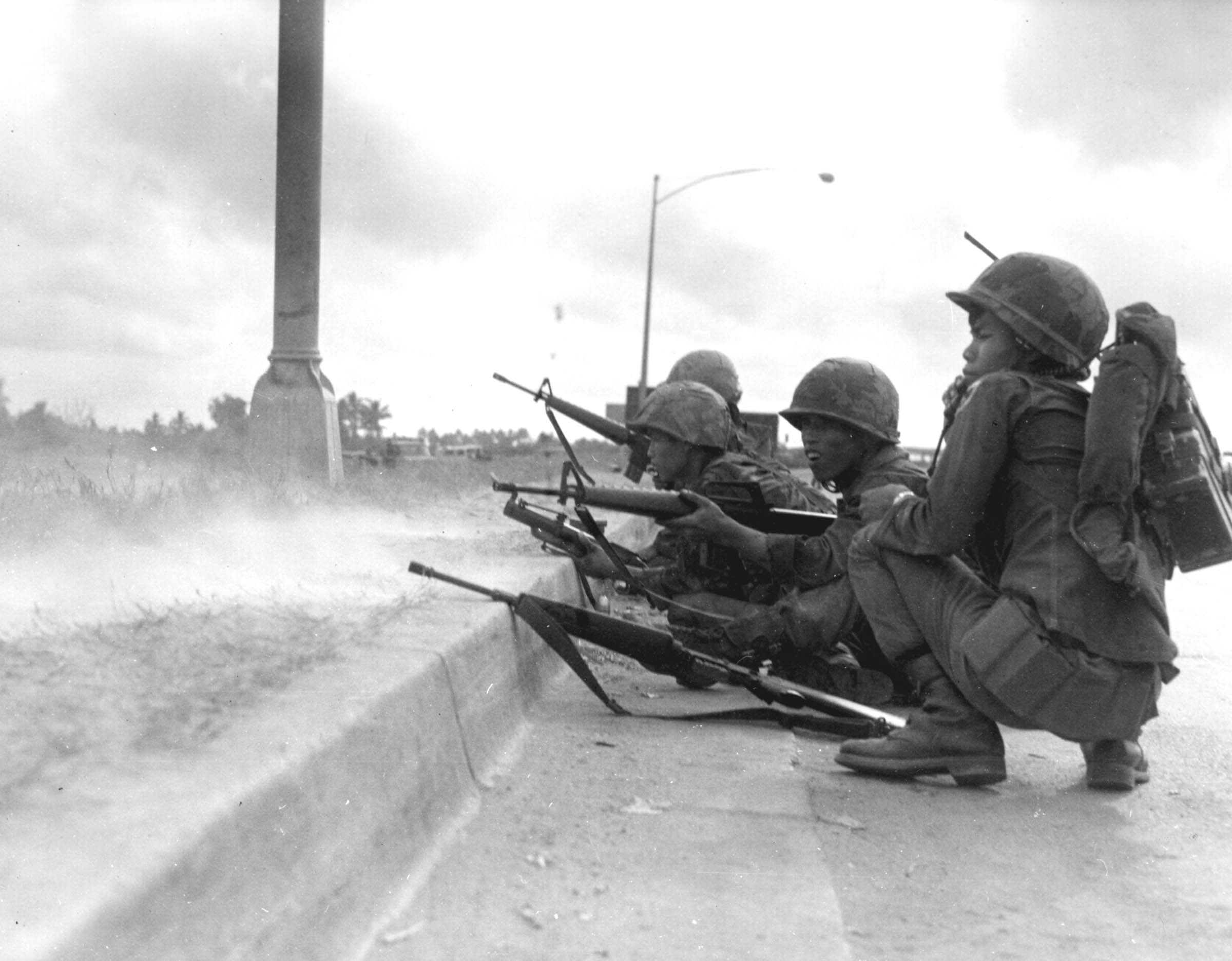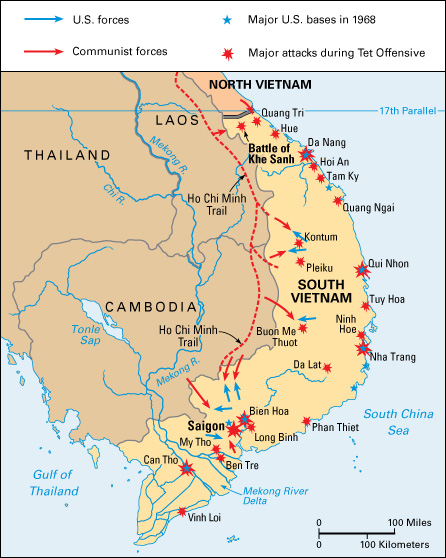Tet Offensive was the turning point of the Vietnam War (1957-1975). The yearlong offensive was supposed to begin on Jan. 31, 1968, at the start of Tet, the Vietnamese New Year holiday. But some commanders mistakenly began to attack on January 30 instead. Communist-led South Vietnamese guerrillas called the Viet Cong, backed by forces from Communist North Vietnam, launched attacks against military bases and major cities in South Vietnam. United States forces fought on the side of South Vietnam. The fighting was especially fierce in South Vietnam’s capital, Saigon (now Ho Chi Minh City), and in Hue. The Viet Cong employed such tactics as a siege of an isolated U.S. Marine unit at Khe Sanh in central Vietnam. This action was intended to divert attention away from the assault on the cities.


The Tet Offensive had a number of objectives. North Vietnam and the Viet Cong hoped to incite South Vietnamese citizens to revolt against their government. Another goal was to inflict a major defeat on U.S. and South Vietnamese forces. However, the offensive’s larger purpose was to undermine the American will to fight. North Vietnam believed it could demonstrate to American war leaders that they could not win in Vietnam by military means. American war leaders had been taking steps to convince the American public and news media that the enemy was almost defeated. The Tet Offensive was designed to prove this statement false, and convince the United States that it should negotiate an end to the war.
Despite much heavy fighting, the Communists failed to achieve success on the battlefield or to spark a popular uprising in their favor. But the Tet Offensive did convince most Americans that the war was likely to be long and costly, with no outright victory for either side. As a result, public support for the war dropped rapidly. The controversy over U.S. policy in Vietnam contributed to U.S. President Lyndon Johnson’s decision not to run for reelection in 1968. In addition, the Tet Offensive led to the opening of negotiations that ultimately brought the Vietnam War to an end. United States troops left Vietnam in 1973, and the war ended in 1975 with a Communist victory.
See also Viet Cong; Vietnam War (The Tet Offensive).
